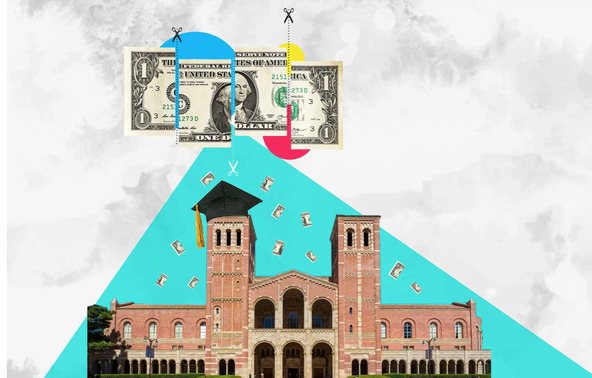UNIVERSITIES CAN’T YANK FINANCIAL AID FROM STUDENTS WHO GET PRIVATE SCHOLARSHIPS, NEW LAW SAYS6/1/2023 By Alyssa Story
IN SUMMARY California colleges often reduce financial aid to students when they earn private grants, a practice known as scholarship displacement. Students say it’s unfair to lose funds they’ve worked hard for and need to pay for soaring living costs. This year, the state agreed, and banned the practice for low-income students starting in the 2023-24 academic year. As Dixie Samaniego prepared for her first semester at California State University Fullerton, she had one focus: finding a way to pay. “I knew that my family wasn’t going to be able to pay, or help in any way financially,” said Samaniego, now a senior, “so I started applying to scholarships everywhere.” As a low-income student, she qualified for a federal Pell Grant and a state Cal Grant, but still had a substantial balance to cover. After hours of applying, writing essays, and interviewing, she received a $5,000 award for her first year from a private foundation that aimed to help students who faced barriers to college. But then, Samaniego said, she got some unwelcome news from Cal State Fullerton’s financial aid office: Adding the scholarship to her financial aid package would reduce the amount of aid she was getting from the university. Confused and disappointed, Samaniego decided not to accept the scholarship she’d worked hard to earn. “I didn’t know a single thing about higher education. I didn’t know a single thing about financial aid,” said Samaniego, who is the first in her family to attend college. “I got all this money, and then I had to make some really difficult decisions.” What Samaniego says she experienced has a name: scholarship displacement. The practice occurs when a student receives a scholarship after their initial financial aid award and their college or university reorganizes their institutional aid package, often leading to a net zero gain for the student. And starting next fall, it will be banned in California for low-income students who qualify for a Pell Grant or for state financial aid under the California Dream Act. California is one of five states in the U.S. with such laws, and only the second in the nation to bar scholarship displacement at both public and private colleges and universities. It’s difficult to quantify how many students scholarship displacement affects, or how much money they lose. But a 2013 study by the National Scholarship Providers Association found that 20% of colleges nationwide reduce institutional grants when a student earns a private scholarship, even if a student still has demonstrated need. Advocates for low-income students say the practice can be a significant barrier to college affordability. A spokesperson for Cal State Fullerton said federal privacy law prevented the university from commenting on a specific student’s financial aid package. But the Federal Student Aid office’s guidelines instruct universities and colleges to re-negotiate financial aid awards if there is a possibility of funds exceeding either the cost of attendance or the student’s need as demonstrated on their Free Application for Federal Student Aid. The rules also give financial aid officers some discretion in working with students to package their awards, however, and colleges have their own policies that they follow in addition to federal law. READ MORE>>
0 Comments
Leave a Reply. |
DBMG In ActionWe are resolutely focused on crafting a positive imprint, utilizing the collective power of our teams, programs, and events. Archives
May 2025
Categories |


 RSS Feed
RSS Feed
